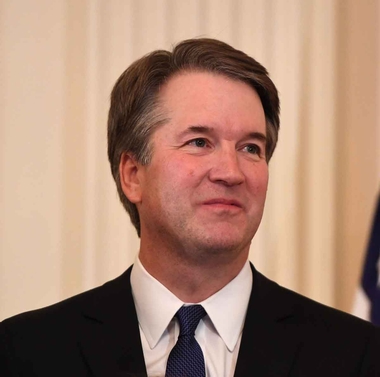A sense of inevitability for Kavanaugh – and goodbye to progressive issues like LGBT+ rights

When Supreme Court nominee Sonia Sotomayor testified in 2009, confirmation seemed so certain that Republican Sen. Lindsey Graham famously predicted she only had to avoid a "complete meltdown."
As Judge Brett Kavanaugh takes the witness chair on Tuesday, the sense of inevitability in these partisan times is even greater. Republicans control the Senate, they are tightly managing the vetting process, and Democrats no longer have an opportunity for a filibuster to block a final vote
Yet the inevitability is strikingly paradoxical because the stakes for the nine-member Supreme Court are greater than they have been in decades. America's highest court rests on a precipice, with many rights -- those related to abortion and university affirmative action, to name just two -- teetering on a single vote.
The chance also exists that this deeply divided bench could end up resolving a dispute related to investigations involving President Donald Trump. Most significant, of course, is special counsel Robert Mueller's probe of Russia's intervention in the 2016 presidential campaign and any ties to Trump's campaign.
Kavanaugh, 53, would succeed Anthony Kennedy, who steadied the bench. A centrist conservative with a 30-year tenure, Kennedy fluctuated in his approach. So, the four liberals had a shot at persuading him to move left on social issues.
He cast the decisive vote to uphold abortion rights and affirmative action and, in 2015, to establish for the first time a constitutional right to gay marriage. Yet Kennedy remained with the right-wing bloc in many areas, including as he penned the 2010 Citizens United case rolling back campaign finance regulations for corporations and unions.
Based on his record over 12 years on a powerful Washington-based federal appeals court, Kavanaugh would not be so fluid. His vote would not be in play for the liberal side.
The result would be a high court less willing to protect individual rights; more willing to reject government regulations, such as those covering consumers and the environment; and ready for a hiatus on groundbreaking decisions favoring LGBT rights.
A Washington insider
A Yale law graduate with sterling credentials and deep Washington experience, Kavanaugh could have been nominated by any establishment Republican president, rather than only by the rebellious Trump. In fact, Kavanaugh's name did not appear on Trump's first or second list of high court candidates in 2016. It appeared only on Trump's third list, put out in November 2017, perhaps because of his Washington insider connections.
Kavanaugh remains closely identified with President George W. Bush, whom he served from 2001 to 2006. During his time with Bush, Kavanaugh assisted with appointments to powerful US appeals courts and three Supreme Court nominations: Chief Justice John Roberts; Associate Justice Samuel Alito; and former White House counsel Harriet Miers, whose nomination for a seat was withdrawn after Bush's fellow conservatives objected that her credentials were lacking.
Senate Republicans, taking advantage of their majority position to control the confirmation process, have blocked Democrats from seeing any of the Kavanaugh documents related to those high court nominations.
When Roberts served in the Ronald Reagan administration, he, coincidentally, also helped prepare a nominee, Sandra Day O'Connor, in 1981.
Roberts drafted answers to questions that senators were likely to ask. As he later wrote in a September 17, 1981, memo released when he was up for confirmation in 2005, "The approach was to avoid giving specific responses to any direct questions on legal issues likely to come before the court, but demonstrating in the response a firm command of the subject area and awareness of the relevant precedents and arguments."
By Joan Biskupic, CNN legal analyst & Supreme Court biographer. The-CNN-Wire™ & © 2018 Cable News Network, Inc., a Time Warner Company. All rights reserved.
The Gayly – September 5, 2018 @ 7:30 a.m. CDT.





